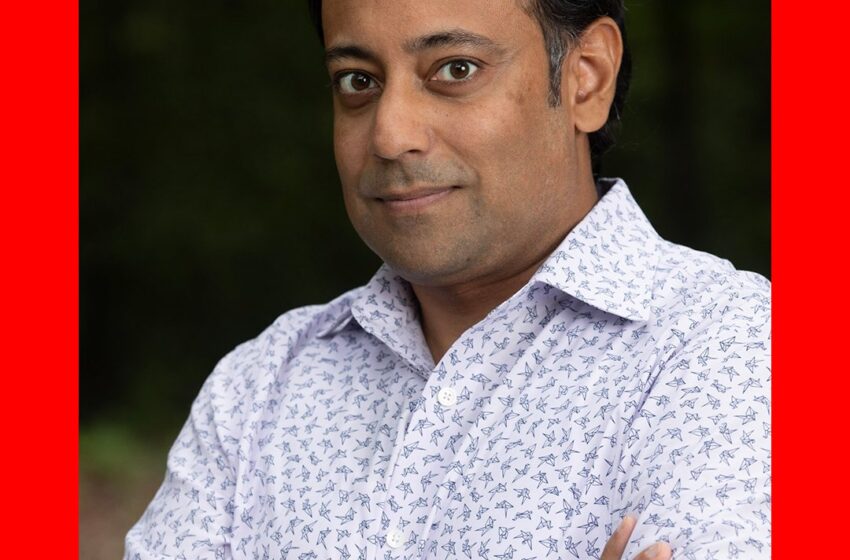5 Indian origin persons on Time 100 Next 2023 list

Nabarun Dasgupta; image via Time
Indian American scientist Nabarun Dasgupta and four other persons of Indian origin are on the ‘Time 100 Next 2023,’ a list of rising leaders in health, climate, business, sports, the arts and more.
This year’s list includes dozens of individuals “who are engineering new solutions to society’s most pressing problems,” Time said. They are scientists, CEOs, artists, an astronaut, and, a librarian.
READ: Indian American Ami Gan among ‘Time 100 Next’ (October 1, 2022)
Besides Dasgupta, people of Indian origin on the list include architect Vinu Daniel, cricketer Harmanpreet Kaur, patient rights advocate and journalist Nandita Venkatesan and Samir Goel, co-founder of Esusu that helps Americans use their rental history to build credit scores.
“Few Americans have done more to prevent drug-overdose deaths than Nabarun Dasgupta,” the magazine noted. “In the past few years, the scientist at the University of North Carolina’s Gillings School of Global Public Health helped launch a program through the nonprofit Remedy Alliance that cleared bottlenecks stopping the opioid-overdose-reversing drug naloxone from getting to the front lines.”
“After creating new supply arrangements and buying the treatment in bulk, the organization distributed over 1.6 million doses across the country in the past year, helping end a life-threatening shortage of the drug,” it said.
READ: Several Indian Americans figure in inaugural TIME100 AI (September 11, 2023)
Dasgupta—who keeps photos of people who have died of drug overdoses on his desk, to remind him of how much work there is yet to be done—also devised a system of swabbing street drugs and testing them at UNC, collecting valuable information to help scientists and drug users alike.
His aim, he says, is to use science to answer big questions about drugs. “With 100,000 people dying a year, it’s not theoretical,” he says.
Daniel’s Kochi, Kerala,-based Wallmakers aims “to build sustainable spaces that are responsive to specific site contexts and conditions while maintaining a balance between innovative and utilitarian design,” Time notes.
“We at Wallmakers have devoted ourselves to the cause of using mud and waste as the chief components, to make structures that are both, utilitarian and alluring,” he says on the company website.
He completed his BArch in 2005 from The College of Engineering, Trivandrum, following which he worked with Auroville Earth Institute for the UNDP (United Nations Development Program) Post-Tsunami construction. Upon return he established Wallmakers.
Kaur serves as the captain of the India women’s national cricket team in all formats. She plays as an all-rounder for the Indian women’s cricket team; and was awarded the Arjuna Award for Cricket in the year 2017 by the Ministry of Youth Affairs and Sports.
READ: A day after featuring on Time 100, Hasan Minhaj wins the Peabody Award (April 18, 2019)
Time says Kaur “secured legendary status back in 2017 when she scored a then record 171 not out off just 115 balls in a World Cup match against Australia, leaving spectators agog at her extraordinary talent.”
Six years later, she is still making headlines. She was suspended for two matches and fined 75% of her match fee in July for criticizing umpires during India’s draw against Bangladesh.
“Kaur’s fire and flair have been instrumental in transforming women’s cricket from fringe curiosity to one of the world’s most valuable sporting assets,” Time adds. This March, Kaur led the Mumbai Indians to become the league’s first champions.
Venkatesan, a data journalist at Mint, and South Africa-based Phumeza Tisile both lost their hearing during their bouts with a multidrug-resistant version of tuberculosis — “a side effect of the toxic cocktail of drugs they took during treatment,” according to Time.
While “Johnson & Johnson has created a safer and more effective drug to treat TB,” Time noted that “patent laws made it inaccessible for many worldwide.”
With the initial patent set to expire in many countries this past July, the company filed for another, which would extend its monopoly.
To end that, Venkatesan and Tisile, along with Médecins Sans Frontières, filed a petition with the Indian government to deny the secondary patent — thus making way for cheaper generics.
In March, India rejected the secondary patent, “a landmark victory that will help make the drug available at a much lower price,” Time said, “We had to undergo what we had to undergo,” Venkatesan told the magazine. “But maybe we could prevent this from happening to others.”
Nigerian Wemimo Abbey’s and Samir Goel’s families faced many obstacles after immigrating to the US, including limited access to credit, according to Time.
“Those challenges helped inspire a smart idea to help others in similar straits. In 2018, the pair founded Esusu, which helps people build credit in America by reporting tenants’ on-time rent payments to credit bureaus,” it noted.
Esusu has helped over 50,000 people establish credit scores, the company says. Esusu also offers zero-interest loans to struggling families through a partnership with the charity Stable Home Fund.
The company has already reached a billion-dollar valuation, but the founders hope to expand its financial services even further and to help reduce the racial wealth gap.
“Ultimately, we want people to be able to have financial wellness and create wealth in their own communities,” Goel says.

